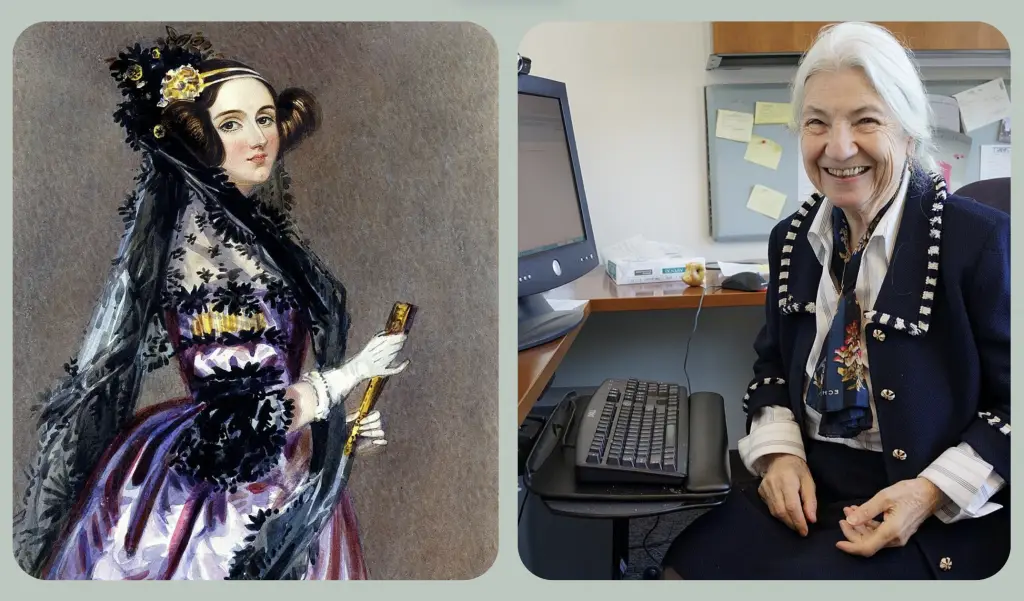Open Call for Case Studies
Open Call for Case Studies: Women and Minorities in Creative Computing

This open call for case studies is undertaken as part of the COST Action 21141 Grassroots of Digital Europe: from Historic to Contemporary Cultures of Creative Computing (costgrade.eu), and it seeks to identify a list of historically significant women and minority individuals (or groups) who have contributed to the field of creative computing in Europe. For the purposes of this call, we define creative computing as any result of a creative process that requires a computing platform (e.g. making demos, electronic music, media art, video games or programming). Our aim is ultimately to develop a series of case studies which outline the roles and contribution of women, minorities and other overlooked groups in creative computing cultures. Selected case studies will be included in Open Educational Resources (OER) on Women and Minorities in Creative Computing. The OER will be available in the public domain under the Creative Commons license, for future use of researchers, educators and policy makers.
Background
Unfortunately, creative computing as a field of practice suffers from the same diversity issues as the IT sector in general (see Turkle 2005, Abbate 2012, Shaw 2015, Vitores and Gil-Juárez 2016, Dunbar-Hester 2020). The lack of representation can be seen on two levels. The first level relates to the actual gender distribution of the past creators. The second level – one that can be altered – is the lack of visibility of women and minorities who participated in these movements. One of the aims of GRADE is to find these cases and restore their place in the ongoing narrative about the history of grassroots movements and creative computing culture.
In line with insights from critical social thought, cultural studies, and diversity-oriented approaches in historiography and archive science, GRADE is committed to enriching the history of creative computing in Europe by contributing to the documentation and preservation of its diversity. In other words, we are interested in the work and input of the broadest range of individuals, socio-economic groups, and communities of practice and identification. To acknowledge and promote these contributions, the GRADE action places specific emphasis on identifying, preserving, and working with individuals, groups, and communities that have, for different reasons, been overlooked in extant scholarship.
References
Abbate, J. (2012). Recoding gender: Women’s changing participation in computing. Mit Press.
Dunbar-Hester, C. (2020). Hacking diversity: The politics of inclusion in open technology cultures. Princeton University Press.
Shaw, A. (2015). Gaming at the edge: Sexuality and gender at the margins of gamer culture. University of Minnesota Press.
Turkle, S. (2005). The second self: Computers and the human spirit. MIT Press.
Vitores, A., & Gil-Juárez, A. (2016). The trouble with ‘women in computing’: a critical examination of the deployment of research on the gender gap in computer science. Journal of Gender Studies, 25(6), 666-680.
Eligibility
This call is open to any member of the GRADE research network.
If you are not a member yet, you can apply easily using the eCOST portal (you will need to create an account if you do not have one yet): https://e-services.cost.eu/action/CA21141/working-groups/apply. Working Group Membership applications are evaluated based on the following three criteria: (1) motivation for joining the Action, (2) prior experience in relevant fields, (3) proposed contribution to the network. The application does not have to be long – a paragraph per section suffices – just remember to state how you can contribute to the Action’s specific working group outcomes (e.g. by submitting a case study relevant to this call). A detailed outline of the evaluation criteria can be found here: https://tinyurl.com/cost-grassroots-evaluation.
Submissions can be made by an individual or a group of individuals.
Personal data
This open call is a part of GRADE’s process of creating a set of Open Educational Resources (OER) on the role of women and minorities in creative computing histories in Europe. The process involves two distinct (pre)production phases: 1) Collection of case study proposals through this open call – these case study proposals will be made available to a designated task force, strictly for internal use within the research network. 2) Selection of proposals to be included in the OER pack, and development of case studies. This phase will entail communication with the persons involved in the case studies, and the acquisition of their informed consent to participate in the proposed research and resource development. For more information, please consult the full Privacy Notice.
Selection Criteria
The Action Leadership will consider all submissions based on the following criteria:
- Overall quality and clarity of the proposal (it should be clear which individuals or communities, and for which reasons are proposed; proposals should also address the case study’s “European” dimension),
- Alignment of the case study with the topic of the call,
- Geographic diversity,
- Agreement with the eligibility criteria.
Each successful proponent case study will be shortlisted to apply for a Short Term Scientific Mission. Publishable draft of the case study should be presented by 31 August, 2025.
Timeline
Release of the Open Call – 27 February 2025
Deadline for submissions – 17 April 2025
Announcement of the selection – 24 April 2025
Deadline to submit case studies – 31 August 2025
All submissions will be reviewed by the Action Leadership.
Submit your application
Applicants must submit their proposal using the following template by 17 April 2025, to the following email address: info@costgrade.eu.
Engage with us
If you have any questions related to this Open Call, please contact Natalija Majsova at natalija.majsova@fdv.uni-lj.si.
